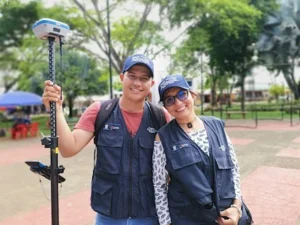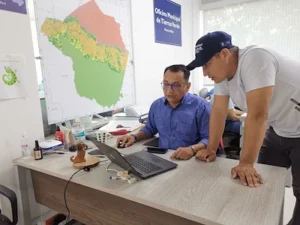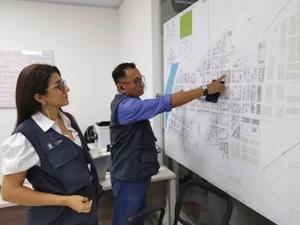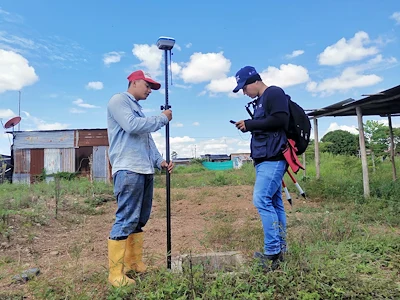Q&A with the Mayor of Puerto Rico, Meta, Colombia
In Puerto Rico, Meta, seven out of 10 urban properties lack a registered land title. Informal property ownership is a very common phenomenon in southern Meta and is largely due to a history of violence and the absence of state services. In 2022, the municipality’s Mayor’s partnered with USAID to create a Municipal Land Office, a local land administration strategy that prioritizes land titling as a key to boost rural investment and improve the quality of life of its 12,000 inhabitants. In this interview, Mayor Diana Navarro, talks about what it means to legalize property in Puerto Rico and how USAID is supporting this strategy.
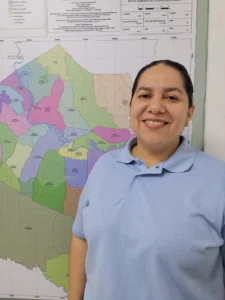
How do you describe your rural development strategy for Puerto Rico?
Puerto Rico has a hard and difficult history, but as a municipality we value very much what we have, the natural wealth is incomparable. There is productive potential and human capital with a lot of hope and desire to move forward. We are focusing on three fundamental pillars: the legalization of land, the construction of tertiary roads, and the development of electric power. With these three issues, people can understand and begin to believe in what we are doing in the territory.
Why is land legalization so important?
During the campaign I went all over the territory, even into the most remote areas. It is not easy, and one of the challenges is to reach and listen to the people who live far away. In my visits, I met many displaced people and many stories, and we decided that we have to evaluate how to make people feel more comfortable and secure on their land. So, one of the strategies is to legalize their property. In terms of property, Puerto Rico is in a state of informality: 70 percent of the land is not titled.
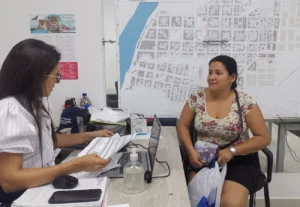
How did the creation and support for the Municipal Land Office come about?
With the support of USAID and the Land for Prosperity program, we have created what we are calling the Green Municipal Land Office, which is part of the Mayor’s Office under the Planning Secretariat. It is called Green because it is important to recognize the natural resources of the municipality, including the water sources, morichales (wetlands), and the Ariari River. Recently, through the Land Office, we delivered the first 32 titles, which correspond to urban private and public properties. Our first goal is to title 400 properties. In addition, with USAID we are in the process of strengthening the culture of formal land ownership among the people so that they improve their understanding of what is possible.
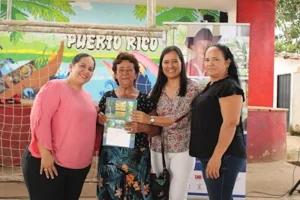
For a Puerto Rican, what does it mean to have a title to your property?
What does it mean to be a landowner? It is being rooted to your land, it is being able to defend your property and not be afraid, but also being able to access bank loans and make secure investments in something that you know belongs to you. At the first land title event, I spoke with a 70-year-old man who has spent 40 years trying to legalize his property. He was emotional and told me that he finally felt that his plot of land was his. With land issues, it is necessary to understand the connotations and emotions of a family when they receive a land title after so many years of living in informality.
USAID helped to create and set up the Land Office. How can the Municipality guarantee its sustainability in the future?
Just as the Municipal Land Office is giving us a hand with the titling of property, it will give us a hand when it comes to collecting property taxes. I have a year and a half left in my term, but the land office is under a long-term agreement. My aim is to leave office with a plan for the future budgets, an investment by the municipality, and a percentage of the collected land taxes is destined to fund the staff and technology required for the office to continue operating.
Cross posted from Land for Prosperity Exposure site
